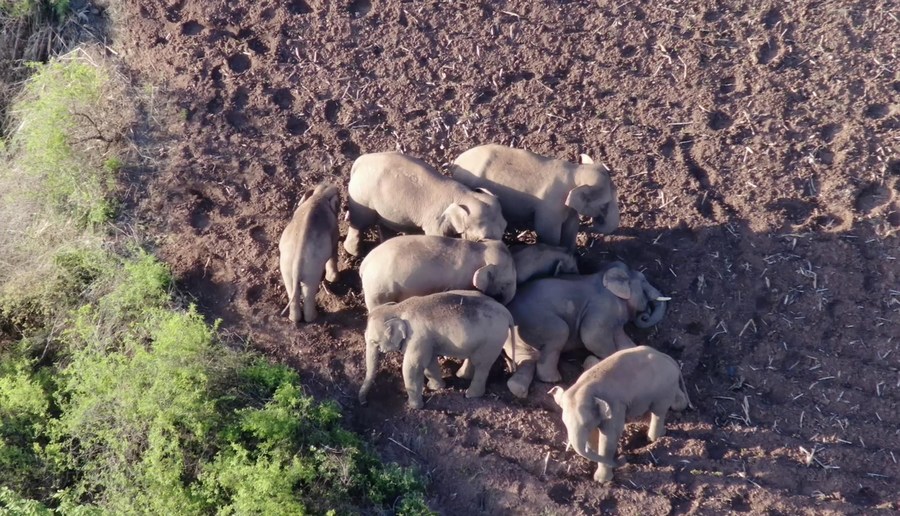'Rebellious' male shows no signs of rejoining herd on the move, expert says


As an elephant herd continues to roam far from its forest home in Yunnan province, there are no signs of the animals being rejoined by a lone male that strayed from the group on June 6.
Many people have asked why the adolescent male decided to leave.
An expert who has researched wild Asian elephants for more than three decades said the animal was "rebelling".
Shen Qingzhong, chief engineer at Xishuangbanna National Natural Reserve, Yunnan, the traditional habitat of wild Asian elephants in China, said, "It is similar to young people reaching puberty and disobeying their parents."
After leaving its habitat in the reserve, the herd traveled about 500 kilometers north before reaching Kunming, capital of Yunnan, on June 2. It went on to roam in Yuxi, south of the city.
Since May 27, Shen has been working with the headquarters responsible for monitoring the herd.
He said that after years of observation he has found that male elephants increasingly stray from a herd after they are 6 years old.
They initially venture off alone to play for a short period. However, the length of time they stray rises to a few days, or even months, as they reach full adulthood.
Male elephants finally leave a herd to look for mates after they reach sexual maturity at around 12 years old, Shen added.
According to the headquarters, the lone elephant was about 52 km from the herd last week.
The animal, which is about 10 years old, is not yet sufficiently mature to permanently leave the herd. Shen said, "He just doesn't want to stay with his parents and wants to go out!"
He added that the IQ of an elephant at birth is equivalent to that of a 1-year-old baby, and when the animal reaches adulthood, its IQ is similar to or even higher than that of a 5-year-old child.
An elephant calf can stand up minutes after being born and can walk with its mother about two hours later. It will join its mother to bathe in rivers and lakes about a week after being born, Shen said.
Chen Mingyong, a science professor at Yunnan University who has been working with Shen at the headquarters, said the herd has been moving slowly recently-one possible reason being that it is waiting for the straying male to return.
He said the lone elephant and the herd have remained in contact by trumpeting to one another.
- China's Long March 8A rocket set for maiden flight in January 2025
- China's top court reiterates 'zero tolerance' of corruption
- Over 300 global representatives discuss innovations in tropical agricultural practices
- China unveils commemorative coins to celebrate upcoming Chinese New Year
- Shanghai carrier Juneyao Airlines launches direct flight to Hanoi
- Lots of drones but too few licensed pilots in China





































